
No matter where you live or what your political views are, chances are the healthcare system can always be better. There are times when basic healthcare is affordable or free, but the service itself and the bureaucracy kill people. Then, there are times when everything seems to simplify, but costs make the system unreachable for many.
Understanding how the healthcare system works will help you see things in a different way, while discovering other points of view can help you make better decisions in the future. Gain a deeper insight into this system and find out more about how work flows. All in all, here are some of the best healthcare reform books to try out.
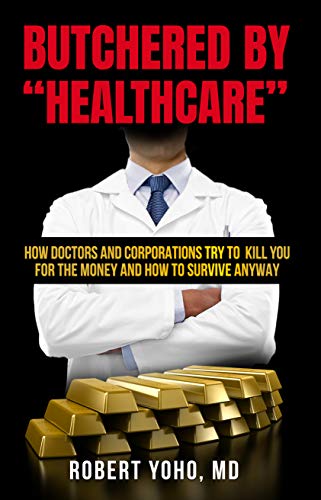
Butchered by “Healthcare”, by Robert Yoho
The healthcare could be the main reason behind financial issues, bankruptcy and debt. In the USA, the healthcare system draws huge amounts of money from people. Since health and safety come first, these issues obviously become a top priority. While spendings are huge, treatments are ineffective.
Most people end up on prescriptions once they reach 50. At the same time, psychiatric medicine is just as harmful – all kinds of addictions and longterm expenses that will literally kill patients. As if all these were not enough, pharmaceutical companies make billions with drugs no one can really understand.
This book is not based on conspiracy, but it points out things that everyone can see. It shows you how the healthcare system can actually kill you should you fail to look after yourself.
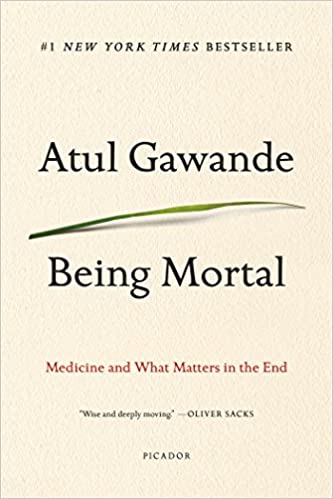
Being Mortal, by Atul Gawande
Being Mortal is the kind of book that will change an elder’s perception of life. At the same time, this is the ideal book if you have old parents – as harsh as it sounds, you know they will go at some point or another, be it in a few weeks or a few years.
Despite modern medicine being so advanced, it has not done too much to enrich the last years of life. Look at elders struggling through their last days. Sure, death is not a comfortable topic, but dignity is part of the game and should be there.
The author explores death in a different way and believes that a few small details will add dignity and happiness to one’s last years.
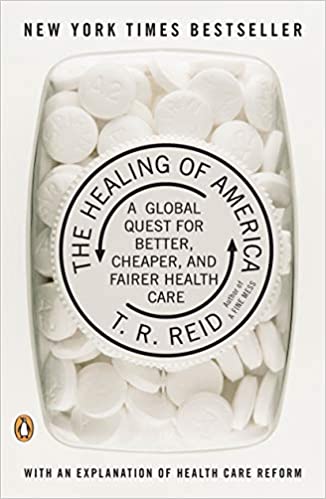
The Healing Of America, by T. R. Reid
Have you ever wondered how some countries manage to maintain a high rated healthcare system? Whether there is plenty of staff, a great service or free healthcare for everyone, some countries are simply better than others.
The author explores the systems in countries like the UK, Japan, Germany or France – as well as a few others – to understand how their healthcare systems are affordable or free, but also successful. Why do other countries ignore these systems and choose to go their own ways?
The USA has struggled with the local healthcare system over the past decades. Not only is it not affordable, but it is not too efficient either – learn a bit about what could change to make it better.
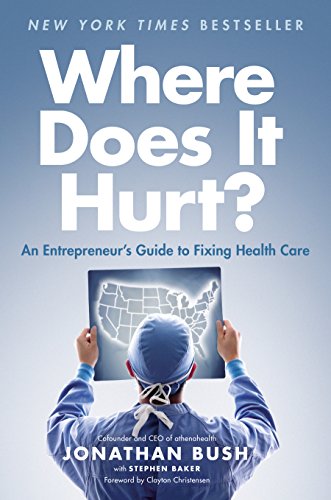
Where Does it Hurt?, by Jonathan Bush and Stephen Baker
Medical offices are some of the last places out there where you still have to fill out forms in person. Bills are almost impossible to pay, while other industries seem to drive prices down with the access to modern technologies. In the healthcare system, everything seems to go in the wrong direction.
This book asks for a revolution in the system. People need more choices. They require information and freedom – not to mention lower prices. The author writes from personal experience, after working as an army doctor and an ambulance driver.
These days, he is the CEO of a company trying to automate the system and reduce the bureaucracy. Will this book open your eyes on the system?
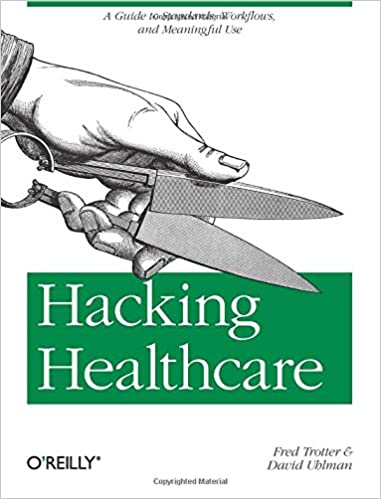
Hacking Healthcare, by Fred Trotter
This book aims to revolutionize a system that seems to fall behind. No matter how far the technology is getting, the healthcare system falls back. There is an obvious necessity for new operating principles and it seems that electronic health records could be the beginning.
This revolution is an opportunity for lots of IT professionals. It is an opportunity for the healthcare system to finally improve and save lives. Of course, people behind it must also accept the new technologies, systems and work flows.
This book will teach you what electronic health records are, how institutions deal with patients, why the system depends on papers and how many problems can actually be avoided.
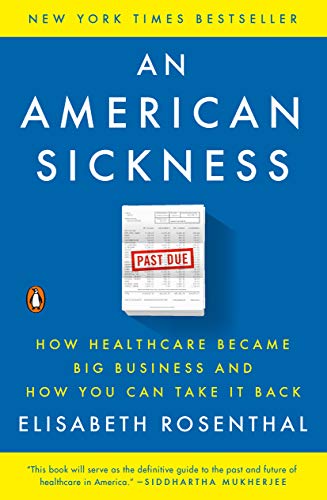
An American Sickness, by Elizabeth Rosenthal
The healthcare system is so dysfunctional because it is a money making business. Over the past few decades, the system has been taken over by individuals and corporations willing to profit from the vulnerable. Politicians have always failed to change things.
Americans are now used to get less, but pay more. How did it get here? The author breaks down this business and analyzes it on multiple levels. Hospitals are like predatory lenders these days. Charities go hand in hand with pharmaceutical companies and so on.
The author believes that people can regain control over the system. She thinks that the healthcare system no longer has the patients’ wellbeing at heart and this has to change.
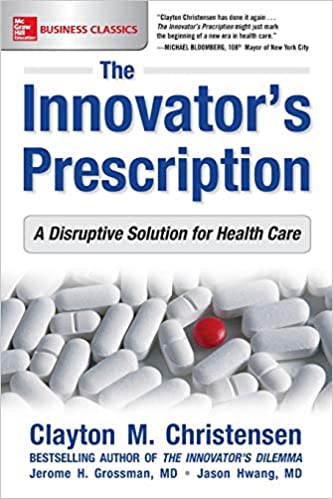
Innovator’s Prescription, by Clay Christensen
Clay Christensen reveals the critical condition of the healthcare system and comes with a few ideas to make it better. More and more Americans find themselves unable to pay for medical bills, while hospitals seem to work like money grabbing businesses.
The book brings in a bunch of strategies to change all these. The principles of disruptive innovation might actually help in the process. Precision medicine is great to reduce the costs, while all these disruptive models involve affordability, accessibility and higher quality standards.
The change should be pushed from two directions – most importantly, employers can make the difference by embracing globalization and changing roles in the healthcare industry.
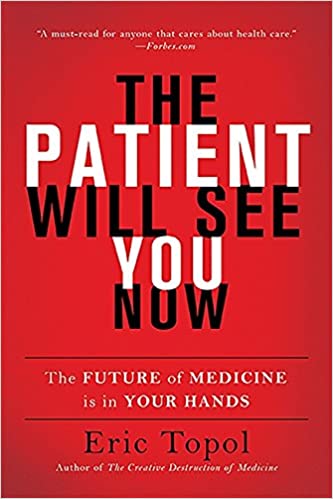
The Patient Will See You Now, by Eric Topol
You know you are about to see a doctor – get ready to face misery at the highest possible standards. You need to survive for a few months before reaching that appointment and you will probably wait there for a few hours anyway. You will wait some more for test results and so on – it is an ongoing challenge.
Eric Topol reveals the fact that medicine does not have to go in this direction. Instead, technological innovations can make everything faster. The smartphone can provide your test results, while your vital signs can be monitored round the clock with just a few gadgets – smart algorithms can also provide help.
Medicine is digitized these days and access to technology gives the patient a bit of extra power – even if doctors prefer to stick to the old fashioned bureaucracy that takes ages. Things will change though.
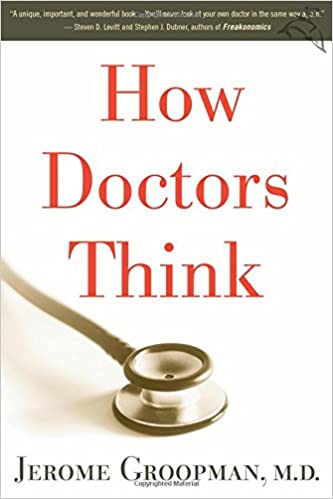
How Doctors Think, by Jerome Groopman
On average, you will be able to describe your symptoms for about 18 seconds before the doctor will interrupt you and give you a diagnosis. Sometimes, these decisions are correct. Other times, they are wrong and can lead to a bunch of disasters.
This book describes how doctors think. You will learn the processes going in their minds while listening to your symptoms. Find out when judgments kick in, how uncertainty affects their diagnostics and how their communication can affect the final result. It is not a book on education though.
Instead, the author teaches you how to identify a problematic doctor or how to spot the warning signs of a potential error. Learn what to ask the doctor to get them back on track for a bit of extra accuracy.
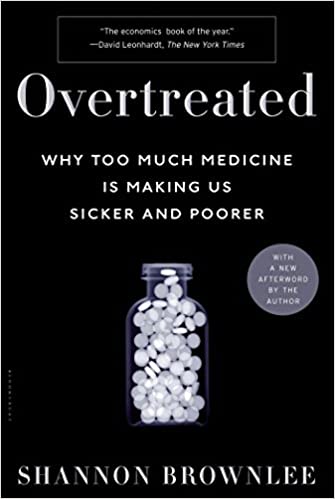
Overtreated, by Shannon Brownlee
The American healthcare system is incredibly expensive and millions of people manage to survive without an actual insurance. The USA has some of the best doctors in the world, but over 100,000 people die yearly from medical errors – about one patient every five minutes, which is an incredible rate.
The author takes you to a hospital and aims to help you understand how the medical world has changed lately. While most economies go forward with innovation and technology, the medical system seems to go backwards. You get a different type of care now and you need to figure out how it actually works.
The book also brings in hope, as it presents reforms that can change the healthcare system – you can also learn how to control your expenses by avoiding overtreatments provided with business purposes.
In conclusion, these are some of the best healthcare reform books out there. Indeed, you are too small for such a large system. But at the end of the day, everyone has to contribute in order to make a change. The more people react against this dysfunctional system, the faster it will heal. At the moment, lots of people simply die because they cannot afford medical treatments and this trend has to disappear.
